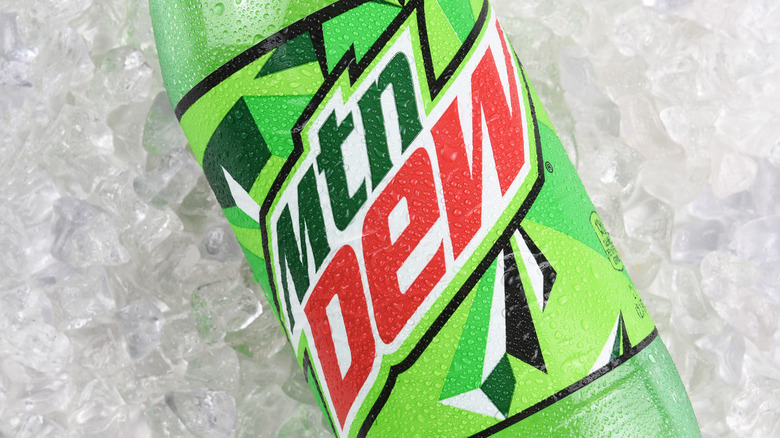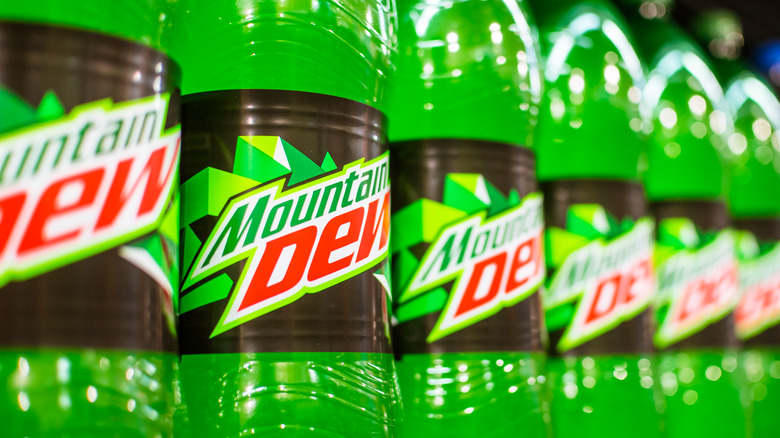The Truth About 'Mountain Dew Mouth'
If you were watching the Diane Sawyer special, "A Hidden America: Children of the Mountains," in 2009, you might have been alerted to a code red in the southeastern mountain region of the United States (via ABC News). A Mountain Dew Code Red, that is. That's because the ABC special took great pains to show the effects of poverty on children in the Appalachian region – a territory that stretches from around southern New York state to Alabama – and coined a term, "Mountain Dew Mouth," which would be repeated in stories about Appalachian health care for years to come.
But what is "Mountain Dew Mouth?" In the special, the term was used as a catchall phrase to describe the poor dental health of children in Appalachia, due to the abundance of sugary drinks. As Healthline tells us, the sugar in sodas reacts with the bacteria in our mouths to form a dangerous acid, breaking down the protective layers in your teeth and causing cavities. But according to Eater, the expression represents much more than teeth made brown and brittle by soda; it is an indication of the much deeper concerns in the area (like rampant drug use, economic stagnation, and lack of access to good healthcare), and how they've created a culture in which poor nutrition is not only the inevitable result but a minor issue by comparison. Or, as Eater puts it, "Mountain Dew is only a sideshow to the heart of the matter."
Is getting rid of Mountain Dew the answer?
According to Eater, Mountain Dew was invented by Barney and Ally Hartman, Tennesseans who were looking for a mixer to accompany their whiskey in the 1930s. Named after mountain slang for moonshine, Mountain Dew was sold to Pepsi in 1964, where the soda went national. To this day, the flavor variations of Mountain Dew often reference the connection to the drink's mountain origins, with names like Mountain Lion and Mountain Holler. But, as NPR points out, the same drink that celebrates the mountain region of Appalachia is also destroying it. Dentists have noticed that the toll soda takes on teeth can resemble the damaging impact of meth. And yet, as Priscilla Harris, an associate professor at the Appalachian College of Law told NPR, battling a drink that has become so ingrained in the culture of the region is not easy.
"What Mountain Dew has going for it is that it's high in caffeine and high in sugar," Harris explained. "Students tell us it tastes best, and it's a habit." And in an impoverished part of the country, where the majority of residents either go hungry or receive government aid for food, public health advocates are calling for a policy overhaul to address the problem of rotted teeth and gum disease in Appalachia. But one has to wonder – if the underlying issues of the region aren't addressed, will taking sodas off the menu really solve anything?

